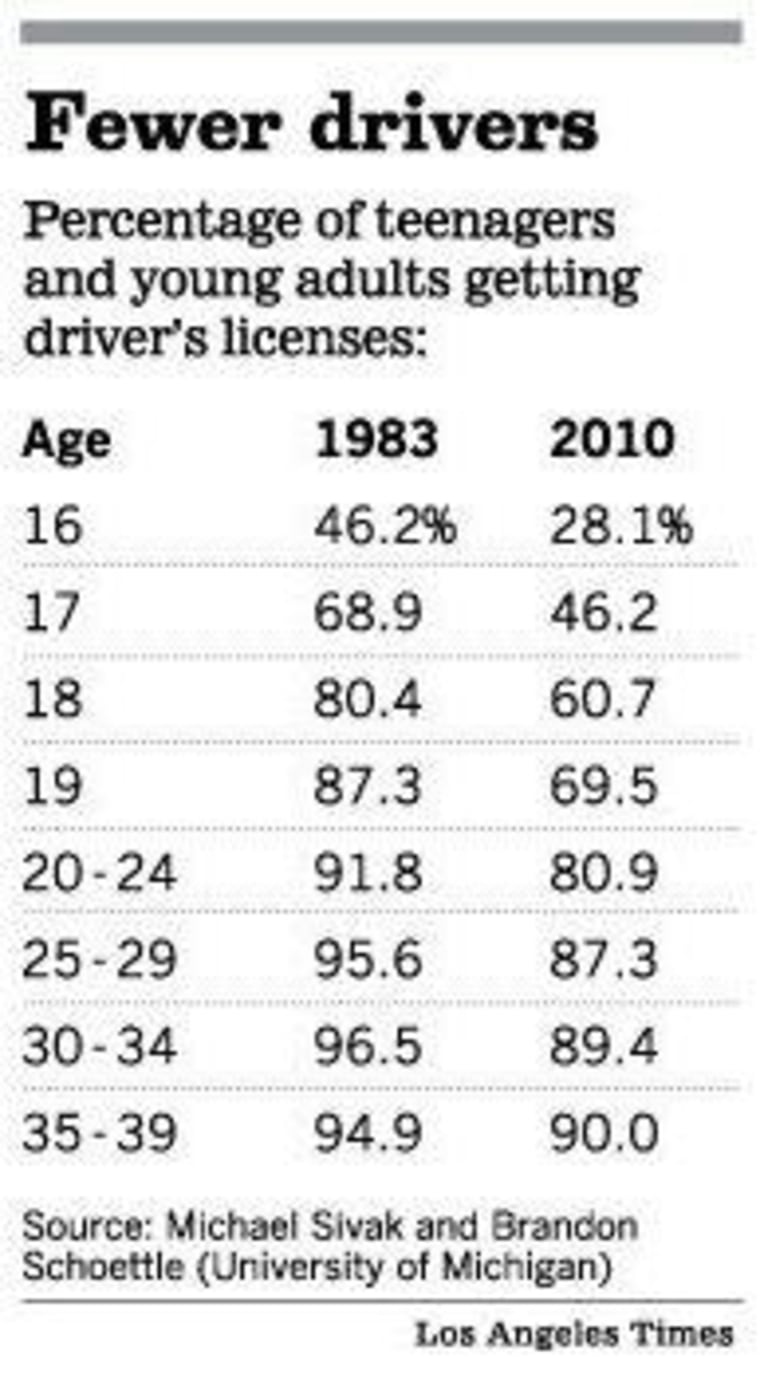The Los Angeles Times had an interesting report the other day on an interesting trend: folks just aren't getting driver's licenses as much as they used to.
Thirty years ago, nearly half of 16-year-olds had a driver's license, their passport to independence. By 2010 that figure had dropped to 28%, according to research from the University of Michigan.The cultural shift is largely the result of technology that keeps teens connected to one another and the coolest new stuff without ever getting into a car. All the adolescent staples -- music, movies, clothes, books -- are available with a mouse click or smartphone swipe.
And if this were simply a matter of youth trends, it'd be easier to explain away. If 16- and 17-year-olds are too busy with SAT prep and extra-curricular activities to worry about driving, it's easy to imagine a traditional process that's being delayed -- those same young people may end up driving after they graduate high school and either enter the workforce, go to college, or both. Note the chart: there's a big jump from 17 to 18, just as there was nearly three decades ago.
But that's what makes the larger trend that much more interesting. As Kevin Drum noted over the weekend, "Even among 30-year-olds, the number of people with driver's licenses is down from 96 percent to 89 percent. That's a surprisingly large drop. I suppose part of this could be explained by the increasing population of large metro areas with decent transit, but I'm not sure that fits the facts. The population of rural areas has shrunk over the past few decades, but I think most of the corresponding population growth has been in small cities and suburbs, which are tough to get around in without a car."
I'm sure there are scholars who can explain the cultural, sociological, and economic shifts in detail, but this also made me wonder about voter-ID laws. Whenever I've listened to some of the legislative debates over these proposals, Republicans reflexively point to non-existent "voter fraud," but they also have a response to Democratic arguments against placing new burdens on the public: "What the big deal? Everyone already has a driver's license, so there's no harm in making people show it when picking up a ballot."
But it appears "everyone" doesn't already have a driver's license. It's increasingly true of student-age voters; it applies to more than 1-in-10 Americans in their 30s; and the Times' chart doesn't even mention elderly voters who don't renew their licenses because they no longer drive.
